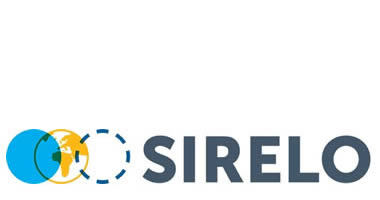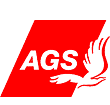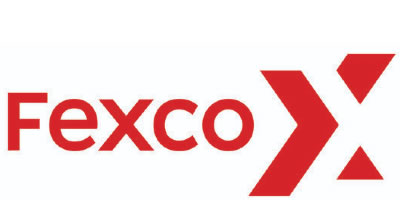Getting a job in Canada

The average workweek in Canada is at least 40 hours long. Business hours are Monday to Friday, 8am to 5pm; with an 30 minute to hour long lunch break in the middle of the day. Common retail hours are 9am to 9pm, Monday to Sunday.
There are two types of jobs in Canada: regulated and unregulated. Regulated jobs account for 20% of Canadian jobs, such as the health care, financial services, and legal sectors.
Expats seek and find jobs in Canada in both permanent and temporary positions in both regulated and unregulated jobs.
Fluent language skills in either English or French are essential to finding employment in Canada. Be aware that the language requirements for working in your chosen profession in Canada might be different than those required for immigrating to Canada. Citizenship and Immigration Canada offers a free language assessment tool.
Some Canadian employers often do not know how to assess education and work experience from some countries, and may require or prefer you to have experience working in Canada before hiring you.
Before a Canadian company can hire a foreign worker they must obtain a labour market opinion from Human Resources and Social Development Canada/Service Canada, which assesses the impact the foreign worker would have on Canada’s labour market, or how an offer of employment to a foreign worker would affect Canadian jobs.
Once you have secured employment in Canada, and your employer has obtained a labour market opinion allowing them to employ you, you must apply for a work permit from Citizenship and Immigration Canada.
You also need a Social Insurance Number (SIN) to work in Canada and have access to government programs and benefits.
Job Requirements
Most jobs in Canada require at least a high school diploma or equivalent. Most professional level jobs require at least an undergraduate degree or equivalent.
Common qualities sought in successful job applicants in Canada include communication and problem solving skills, positive attitudes and behaviors, adaptability, self-advocacy, resourcefulness, organization, reliability, independence, and team working skills.
Finding a Job
Most job searches in Canada are conducted online. There are several Government of Canada services designed to assist you in your job search, such as the national Job Bank.
Jobs may also be listed online through classifieds web sites Craigslist and Kijiji, through provincial job banks, through private Internet resources such as Monster.ca, Career Beacon, and Workopolis, through university job banks, on community bulletin boards, and in the print copy of newspapers.
Most job listings or postings in Canada will list the job title, employer name, terms of employment (full time, part time, etc.), salary (hourly or annual), anticipated start date, location, and skills requirements (education, experience, languages, specific skills, transportation, etc.)
You can also find jobs in Canada through placement and recruitment agencies or head hunters such as
- Adecco,
- Beresford Blake Thomas,
- Calain,
- Drake International,
- FEP Search Group,
- Headhuntersdirectory.ca,
- Hunt Personnel,
- Kelly Services,
- Maizis and Miller Consultants,
- Manpower Professional,
- Quantum Technology Recruiting Inc.,
- Randstad Canada,
- Red Seal Recruitment Solutions Ltd.,
- Spherion, Tele-Resources Placement Agency, and
- The People Bank.
You can also find potential Canadian employers at job fairs both in Canada and abroad. Job fairs or expositions provide employers, recruiters, and schools with a place to meet prospective job seekers. Job fairs normally include community or company booths, where resumes and business cards can be exchanged. Job fairs are a good place to network and learn about job openings in your industry.
Canadian job fairs are also held overseas in Chile, South Africa, the United Kingdom, Ireland, and Scotland to attract workers in these countries to migrate to Canada. Many of these international job fairs are industry specific, such as energy, mining, and engineering job fairs.
Due to the time and costs associated with advertising a job, many job vacancies in Canada are filled informally. This is referred to as the “hidden job” market. Information about available work is often circulated through managers, employees, business acquaintances, friends and family. Networking is the best way to search for jobs in the hidden job market.
Employment Opportunities by Geographic Area
Employment opportunities vary widely between geographic areas in Canada. While there are generally fewer job opportunities in the Northern territories and provinces, there are many jobs in the northern mining industries. In the Western provinces, an abundance of vacant positions, predominantly in the oil and gas industry and engineering sectors, has Canadians migrating to this area of the country.
In Central Canada and British Columbia a wide variety of jobs are available in all industries, while arts and entertainment jobs tend to be centered in Toronto and Montreal. Agricultural jobs are plentiful in Central and Western Canada, and you can also find manufacturing jobs in many rural areas of Canada. Forestry jobs are available across the country. The need for healthcare professionals varies according to geographic area.
Citizenship and Immigration Canada’s interactive Canadian Job Market tool allows you to explore job market trends for each province and territory in Canada.
Employment Opportunities by Industry & Qualifications
Understanding labour market information can help you identify what employers in Canada are looking for in prospective employees.
You can obtain industry specific facts about non-regulated professions using Citizenship and Immigration Canada’s interactive Working in Canada Tool, which provides information about where to live, job descriptions, wages, skills, language training, and job opportunities tailored to your needs.
You can explore what career paths may be open to you in Canada according to your specific educational history by using the Government of Canada’s Explore Careers tool. You can also explore what jobs may be open to you according to your specific skills and knowledge by using this similar interactive tool.
Temporary Workers
Every year 150,000 foreign workers enter Canada to work temporarily in jobs that help Canadian workers address skills shortages, such as live-in caregivers.
A work permit is required for most temporary jobs in Canada. If you are a temporary worker from a country that requires a visa to enter Canada, you must also apply for a Temporary Resident visa through Citizenship and Immigration Canada.
Job Applications
When applying for a job in Canada you should submit a cover letter accompanied by a Curriculum Vitae (CV) or résumé by email or in person.
Résumés should include personal details, education history, employment history, past duties, knowledge of languages, computer skills, hobbies, awards or achievements, and references. The Government of Canada provides a free online résumé builder service, however, it does require registration.
Cover letters are normally no more than one page. This provides the employer information about career intentions, educational background, professional experience, suitability, and availability.
Interviews
In Canada it is common to research the company and job before writing your resume and cover letter and preparing for an interview.
Interviews can be simple, informal meetings between you and the potential employer, or formal interviews between you and a group of people with set questions.
In Canada it is common to arrive early to interviews, which normally take at least an hour. When you are contacted to schedule an interview you can ask if there will be a test as part of the interview and how many people will be at the interview. You should bring a copy of your resume for each interviewer, copies of your references list, paper and pen, and copies of letters of recommendation.
In Canada it is customary to follow up an interview with a phone call to thank your interviewer(s) and/or inquire about the status of the hiring process. This can be done several days to a couple of weeks after your interview, depending on the closing date of the application process.
By Jess Gerrow, who traded city life in Canada for island life in the Mediterranean two years ago. She is a postgraduate marketing student, blogger, and freelance writer.
- My Life Abroad -
A selection of expat stories

"A fun compulsive read!"
J. Matcham, Amazon
"I strongly advise people ready to live abroad to read this book!"
Patrice, Amazon


 AGS Worldwide Movers
AGS Worldwide Movers Fexco payment solutions
Fexco payment solutions 1stMove Car Shipping
1stMove Car Shipping